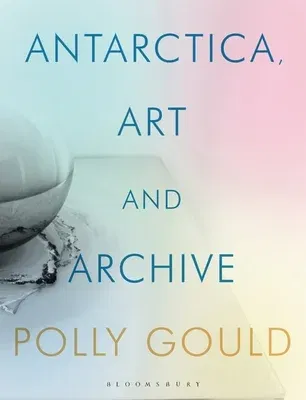Antarctica, that icy wasteland and extreme environment at the ends of
the earth, was - at the beginning of the 20th century - the last
frontier of Victorian imperialism, a territory subjected to heroic and
sometimes desperate exploration. Now, at the start of the 21st century,
Antarctica is the vulnerable landscape behind iconic images of climate
change. In this genre-crossing narrative Gould takes us on a journey to
the South Pole, through art and archive.
Through the life and tragic death of Edward Wilson, polar explorer,
doctor, scientist and artist, and his watercolours, and through the work
of a pioneer of modern anthropology and opponent of scientific racism,
Franz Boas, Gould exposes the legacies of colonialism and racial and
gendered identities of the time. Antarctica, the White Continent, far
from being a blank - and white - canvas, is revealed to be full of
colour. Gould argues that the medium matters and that the practices of
observation in art, anthropology and science determine how we see and
what we know. Stories of exploration and open-air watercolour painting,
of weather experiments and ethnographic collecting, of evolution and
extinction, are interwoven to raise important questions for our times.
Revisiting Antarctica through the archive becomes the urgent endeavour
to imagine an inhabitable planetary future.

